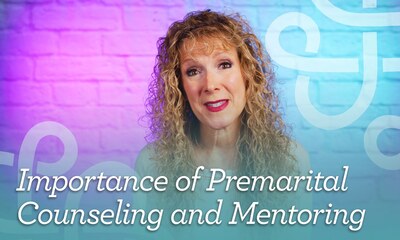4 Steps to Reducing Debt for Newlyweds

So, you want to know the number one challenge for newlyweds? It’s the number one point of contention, and perhaps even the biggest reason for marital failure. Have I got your attention? It’s Money!
And it’s not usually how you earn it or even how much you make. The big challenge is in how you use it, and what role it plays in how you live. It all comes down to the understanding that what we have is not our own, but we are only stewards of what we have been entrusted. The really cool thing is that God knows how big of a deal this is to our marriages and He provided a great guidebook on how to live. You didn’t know God wrote the best-selling and most read guidebook on personal finance? Thought Dave Ramsey or Ron Blue did that? Where do you think they got their best ideas? Read on.
The topic of money and finance is huge in Scripture…
- 17 of the 38 parables deal with money.
- There are 2172 mentions about possessions.
- Money is mentioned 3 times more than love, 8 times more than belief, and 7 times more than prayer!
If God wrote so much about it in Scripture, do you think think money is important to him? You bet it is.
So why do we spend money on things we really don’t need and why do we let it become such a big deal in our marriages? It is interesting that 1 Timothy 6:8 tells us that we should be satisfied if we have two things: food and covering. Most scholars believe that covering refers to shelter, not a $120 pair of dress slacks from Nordstrom! For Julie and me, that is a real battle. We like the things that bring comfort and perhaps even a little luxury in our life. And you know what? A little of that is OK, if it doesn’t become your driving purpose in life!
JP Moreland and Klaus Issle have written a good book on the subject called “Today’s Confusion about Happiness.” In the book they identify how each of us has an “empty self.” It’s that deep yearning for something more that is deep down inside of us. Our culture and human condition tell us to fill that empty self with stuff. The problem is that it can only be filled with the things of Christ, and not the things of this world. Stuff and the experiences that go with it will never satisfy the soul!
So let’s be clear here, my friends, on whose money you are really spending! Deuteronomy 10:14 is very clear that everything belongs to God. That means that it’s not “his money and her money” or even “hers and his and hers” as a few of my male friends have suggested. It’s all His! That means that how we spend our money is important to the one that owns it all.
For many young couples, perhaps even for you, the damage of debt is already done. You are a slave to the debt that you have acquired or are acquiring. And yes, debt is equal to bondage to the debtor! More than 40% of graduating students will be unable to immediately follow the careers that they have prepared for, because of the debt that they are carrying out of college. If you have school loans, a car loan, a new house loan, and perhaps the bills are climbing! What can you do? Here are a few tools that you can begin using today that can make a long-term financial difference in your life and free you up to follow your calling!
4 Steps to Reducing Debt
1. Start by keeping a record of all of your spending.
Keep a little notebook or use an online tool to record every expenditure for a couple of months. Perhaps color code by category so you can see every $5 caramel latte non-fat decaf! Both of you need to participate and record everything. You will begin to see patterns in your spending that should make a difference in how you spend.
2. Know where your assets and liabilities are.
Make a list of all the things you own and all the things you owe. I do this every month! The goal is to grow the list of assets and reduce the list of debt. Don’t expect to have much when you are just starting out. But you should see the debts reduce and assets grow over time. This is a great tool for identifying your liabilities and the interest rates and payment structure for those debts.
3. Using what you have identified in your assets and liabilities list, create your strategy for paying down the debt.
I suggest making the necessary payments on all of your debt but pay any extra money you may have towards the highest interest rate loans first. Often these are credit card or other high-interest rate loans and these are the loans that are costing you the most money. Once that loan is paid down, don’t go out and spend that money on something new but rather put it towards the next highest interest rate until it is paid down. This “snowball” method of paying down debt can really make a difference on your liabilities list. The other strategy that works great is the avalanche method, and it is to pay down those small loan amount loans first. It feels so good to have them paid down for moving to the next smallest loan. You will see the debt fall away! The key is not to go spend the extra money that is freed up when debts have been paid but roll it into the next debt to be paid down! You can do it!
4. Create a budget!
If you don’t have one now, get on it! There are some great resources available online and they can really help you get your spending in line.
One of the best things you can do is seek financial counsel if you are struggling in any of these areas. I enjoy meeting with students and alumni so that you might create the perfect plan for your financial future. If I can help out or recommend a resource drop me an email at rick.bee@biola.edu. For more information on debt reduction or to sit in a class of Faith and Money taught by Dr. Bee go to Open Biola.




